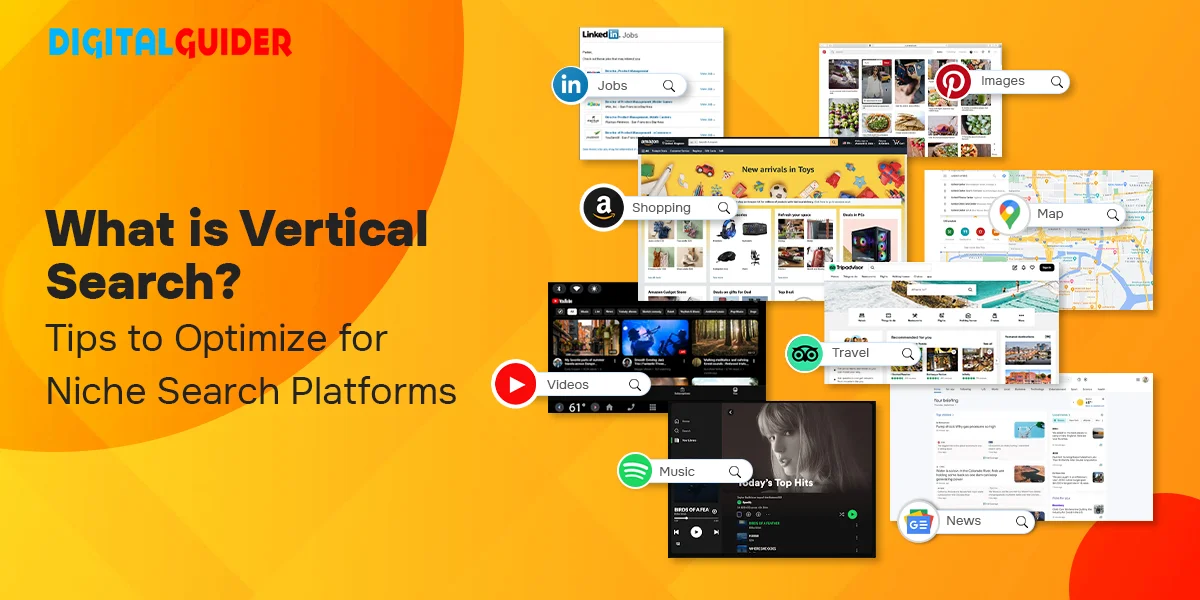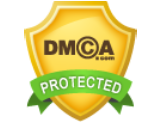Once upon a Google search…
Someone typed a query. Google served up 10 links.
But one result stood out, not because of a clickbait title or top ranking, but because it consistently delivered the clearest and most helpful answers.
That website didn’t get lucky. It built something powerful behind the scenes – Topical Authority.
In this blog, we’ll explore what topical authority is, why it matters for SEO, and how you can build it step by step.
What is Topical Authority in SEO?
Topical authority in SEO indicates that your website is seen as the most trusted and relevant source of information on a specific topic. It’s the difference between casually covering a topic and becoming the go-to expert.
Building SEO topical authority makes it easier for search engines to understand your niche, helping you rank higher for related keywords.
🔍 Breaking it down:
- “Topical” = A specific subject area or niche (such as skincare, fitness, SaaS marketing).
- “Authority” = The trust and credibility your business or website earns from both search engines & users by consistently publishing consistent, accurate, in-depth content.
Let us learn it with a quick example:
Someone searches for “how to speed up a slow laptop.”

- Site A gives a basic 500-word blog.
- Site B offers a full content series:
- “10 Reasons Your Laptop Is Slow”
- “Best Tools to Clean Up Your Computer”
- “How to Upgrade RAM Without Breaking Things”
- Plus, video tutorials and internal links connecting it all.
Guess who wins?
Site B.
Not because it posted once, but because it owns the conversation. That’s topical authority SEO, when your content becomes the expert, not just another answer.
Owning a topic is powerful. But it’s not the same as having a high domain authority.
Let’s break down how topical authority and domain authority differ and why both matter.
Topical Authority vs. Domain Authority: What’s the Difference?
At first glance, SEO topical authority and domain authority might seem like two sides of the same SEO coin, but they are not.
Domain Authority is more like a popularity score from the SEO tool. It measures your website’s overall strength and credibility, based on factors like backlinks, site age, and trust signals. It predicts how well your entire site might rank in search engines.
Topical Authority, on the other hand, is about how deeply and consistently you cover a specific subject. The more focused and helpful your content is, the more trust you earn from users and Google.
So what’s the difference? 🤔
A website with high domain authority might still struggle to rank for topics it barely covers. Meanwhile, a website with moderate authority can dominate its niche if the content shows depth, clarity, and relevance.
In today’s SEO world, it’s not just about authority; it’s about proving real, topic-level expertise. And that’s exactly what topical authority delivers.
Understanding the difference is just the first stage; the real magic happens when you look at why topical authority has become important for SEO success.
Why is Topical Authority Important for SEO?
In modern SEO, topical authority is crucial for long-term success and real results. Here’s why it is important:

-
Improves Content Relevance
When you consistently create high-quality content around a specific subject, search engines see your site as highly relevant for related searches. This means your webpages are more likely to rank not just for primary keywords but also for related terms and long-tail queries.
-
Supports Internal Linking Strategy
A strong topical map makes it easier to create internal links to your webpages that guide visitors (and search engines) deeper into your content. This improves indexation, distributes page authority across your website, and develops a logical content flow for your audience.
-
Enhances User Experience
When visitors find all the answers they need on your site, they stay longer, explore more pages, and are more likely to return. This eventually boosts engagement metrics like dwell time and pages per session and signals Google that your content is fulfilling the search intent.
-
Optimizes for AI-Driven Search
The need to define a topical authority SEO arises so that content can compete against responses generated by AI. AI-powered answer engines and generative models have enabled individuals to search for information in countless ways. It strengthens AEO and GEO as the visibility factor evolves in the modern and digital era.
-
Boosts Organic Traffic Over Time
SEO topical authority is a long-term growth strategy, as once Google understands your expertise in a niche, your content benefits from a steady flow of organic traffic, without relying on paid ads. Even your old articles get a boost with high topical authority as they are seen as part of a trusted, authoritative cluster.
-
Builds Trust & Credibility
As shown in the example above, topical authority in SEO builds trust with both Google and your audience. By covering a topic in depth from multiple angles, you show users you’re a reliable source, and search engines reward you with higher rankings.
-
Helps you Outrank Competitors
Instead of targeting single keywords, building topical authority lets you own an entire subject area, which creates a protective shield around your content that competitors struggle to cross. Even if your domain authority is lower, you can beat large websites in search results if your coverage on a specific topic is more detailed, organized, and relevant.
Let us have a look at how topical authority actually works to earn higher rankings and long-term visibility.
How does Topical Authority work?
💡Think about it – When someone visits your website, do they look for one random article, or do they discover a well-connected library of answers?
That’s the difference topical authority makes.
Instead of targeting scattered keywords, you focus on one central topic and cover it from every possible angle. This starts with a comprehensive pillar page as the main hub, supported by detailed subtopic articles that explore specific questions, trends, and related ideas.
When all of these pieces are linked together, you create a topic cluster that works on two levels:
- For search engines: It clearly demonstrates the relationship between your content, helping them understand you are an expert in that niche.
- For users: It makes navigation effortless, with each click leading to another useful, relevant piece of content.
Search engines like Google reward this with higher rankings because it aligns perfectly with algorithms like the Helpful Content System and its core ranking updates. They look for depth, context, and authority rather than isolated keywords. And when your website shows E-E-A-T (Experience, Expertise, Authoritativeness, Trustworthiness) across an entire topic, it sends powerful signals that you are the most relevant source.
Additionally, with AI-driven search and answer engines on the rise, high topical authority also increases your possibilities of being featured in direct answers and conversational results.
In short, when you consistently prove you’re the most reliable source on a topic, you win twice: users trust you, and search engines see you as the best match for their queries.
So, how do you go from understanding topical authority to actually owning it in your niche? Let us walk through the steps.
How to build Topical Authority in SEO?

To build the topical authority of your website, you need a clear plan and consistent execution. It is not about publishing random content and waiting for traffic, it’s about building a tightly linked network of information that positions you as a leading authority in your field.
Here’s how to gain topical authority:
1. Choose Your Core Topic
The foundation of topical authority in SEO starts by identifying a subject that is central to your business. This is your pillar topic, a broad yet focused subject with long-term potential. It should be closely tied to your business goals, relevant to your audience, and evergreen enough to stay valuable over time.
For instance, for a travel blogger, the main subject can be “Budget Travel in Miami.” Subtopics could include “Cheapest Cities to Visit” and “Packing Light for Long Trips.”
2. Build Topic Clusters
For building topical authority SEO, it is better to look for topic clusters than to chase individual keywords. With in-depth keyword research, create groups of related search terms, questions, and phrases that your audience is asking. This will help you create a content network that answers every angle of the subject.
📌 Where to Find Topic Ideas:
Tools like Ahrefs, SEMrush, and Google’s “People Also Ask” & “Related Searches” can reveal dozens of angles to cover your pillar topic. Additionally, explore your communities on Reddit, Quora, and other social media platforms.

| ➕ Bonus – Study what high-ranking competitors cover and spot gaps you can fill. |
3. Create Strategic Content
Your pillar page is the master guide for your chosen topic. It’s a one-stop resource that introduces the subject, covers key subtopics, and links to detailed articles for deeper reading. This magic of the content hub continues with a network of subtopics, including individual blog posts, guides, tutorials, or case studies.
Each of these pieces should:
- Cover relatable questions, trends, and insights.
- Link back to the pillar page to reinforce its authority.
- Interconnect with other related posts to keep readers exploring and engaged.
4. Implement Relevant Links
Every piece of your website’s content should feel like a connected chapter of the same book. That’s why it is essential to strategically link your pillar page to related subtopics (and vice versa) to help visitors discover more valuable content. This keeps them engaged longer, reduces bounce rates, and increases the chances they’ll trust and return to your site.
For search engines, these links serve as signposts to help them understand your website’s structure, depth of coverage, and authority in your niche.
| 💡 Pro Tip – Avoid random linking. Every link should be relevant and useful, just like the right chapter in the right part of the book. |
5. Keep Your Content Fresh
SEO Topical Authority is not a one-time effort; it is a long-term commitment. Google loves fresh, accurate, and regularly updated information. If your pillar page or subtopic articles are outdated, both users and search engines will move on to competitors who provide the latest insights.
Make it a habit to regularly revisit your pillar pages. Even the minor changes, like updating outdated statistics, replacing broken links or expanding necessary sections with new insights, can optimize your content and make it alive again for Google and visitors.
| 💡 Pro Tip – Create a simple content update calendar to systematically review and refresh your key pages every few months instead of scrambling to fix them when traffic drops. |
6. Showcase E-E-A-T
Google’s helpful content and rankings rules highlight E-E-A-T, which directly impacts topical authority. If you want to be recognized as a go-to expert, you need to show real credibility.

Ways to boost your E-E-A-T:
- Experience: Share personal insights, real-world examples, or first-hand case studies.
- Expertise: Highlight credentials, qualifications, or expert knowledge in your content.
- Authoritativeness: Earn mentions and backlinks from trusted sites in your industry.
- Trustworthiness: Build a professional website with clear author bios, references, and secure browsing (HTTPS).
When your content demonstrates genuine knowledge and reliability, it not only satisfies readers but also aligns with Google’s ranking factors.
7. Build External Signals of Authority
Topical Authority also depends on external validation from reliable sources, which helps Google and your audience trust your expertise.
For your help, here are some useful external signals:
- Guest Posting: Publish high-value articles on relevant, authoritative websites in your niche.
- Backlinks: Leverage link-building by creating unique, in-depth content that people want to share.
- Social Proof: Share content on LinkedIn, Twitter (X), or niche forums.
- Collaborations: Partner with influencers, brands, or thought leaders in your industry to reach new audiences.
8. Track, Measure, and Refine
Your continuous process of building topical authority cannot improve if you do not measure the performance.
Monitor key metrics like organic traffic growth, ranking improvements, engagement metrics, and backlink growth to refine your content strategy using the insights.
Tools to Build & Measure Topical Authority
- Ahrefs: Good for finding topic clusters, analyzing competitors, and discovering “content gaps” you can cover.
- SEMrush: Helps find related keywords, “People Also Ask” questions, and trending topics within your niche.
- Google Keyword Planner: Free and effective for identifying core and long-tail keyword opportunities.
- AnswerThePublic: Visualizes search queries around your topic, making it easy to see what people want to know.
- Google Search Console: Lets you monitor rankings, impressions, and clicks for your pillar and cluster content.
For example, using SEMrush, we checked ‘Digital Marketing’ for Digital Guider to see the topical authority.


TL; DR—Where Strategy Meets Authority
Overall, Topical Authority is your ticket to becoming Google’s trusted expert. Earn it through consistent, valuable, and well-connected content. By focusing on a core topic, creating a content hub, linking strategically, and keeping everything fresh, you position your website as the ultimate go-to resource.
👉 Start building your topical authority today and turn your website into a trusted brand that Google loves and your audience relies on.
FAQs – Topical Authority SEO
Q1. Can a small blog actually compete with big websites?
A1, Yes. A smaller website with highly focused, in-depth content on one subject can outrank bigger, general sites.
A2. Not at all. Landing pages, product pages, FAQs, case studies, & even videos can show authority. If it’s content, you can build authority with it.
A3. Absolutely. Product guides, comparisons, and how-to posts around your niche make your store the “expert” shoppers trust.
A4. For sure. Covering related video topics in a series builds authority in YouTube search, just like topic clusters do in blogging.
A5. Absolutely. Sharing your expertise in a podcast adds authority, and repurposing those episodes into blogs or guides strengthens your content hub.
A6. Think about when you ask Siri or Alexa a question, those answers often come from trusted sources. Covering topics in depth increases your chances of being chosen.
A7. Yes! If you cover location-based or local topics, Google sees you as the go-to expert in that area.
A8. Yes, AI can speed up keyword research, outline creation, and even content drafts, but human expertise is still essential to add depth, trust, and originality.
A9. A clean hierarchy with pillar pages linking to subtopics helps Google understand your content depth and relevance.
A10. Publishing random, unconnected posts instead of building a strategic, interlinked content hub.







